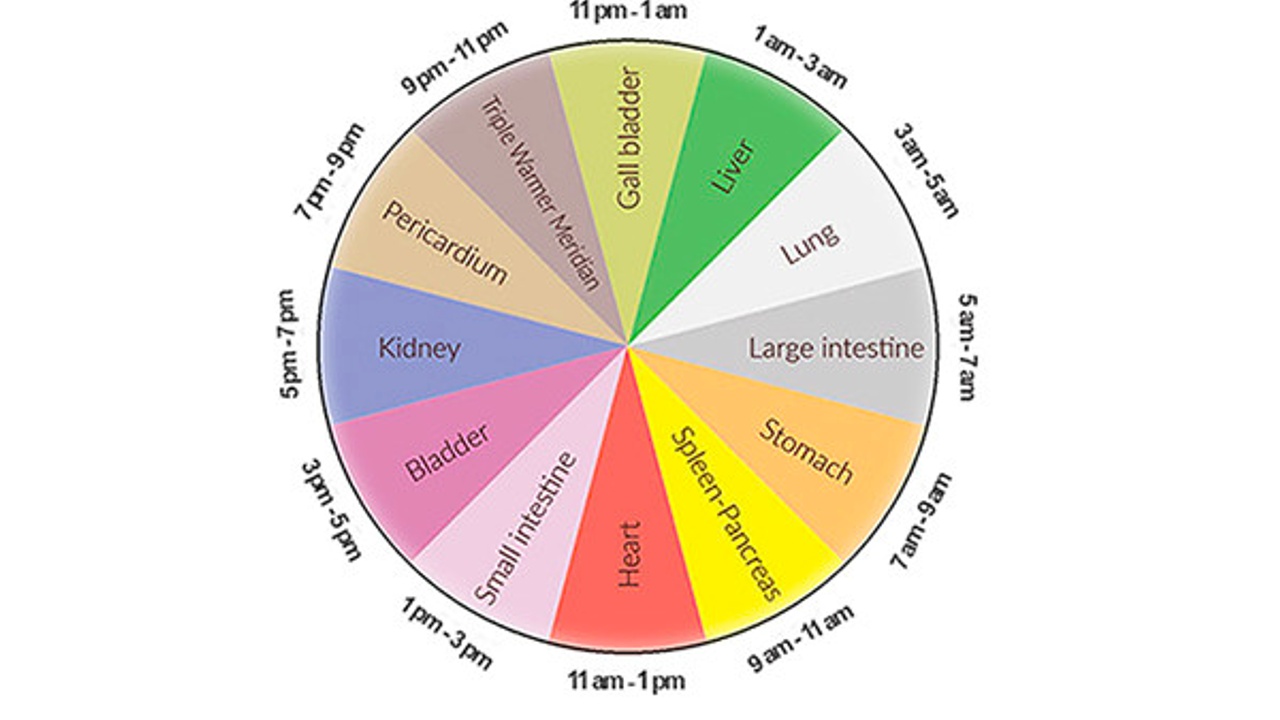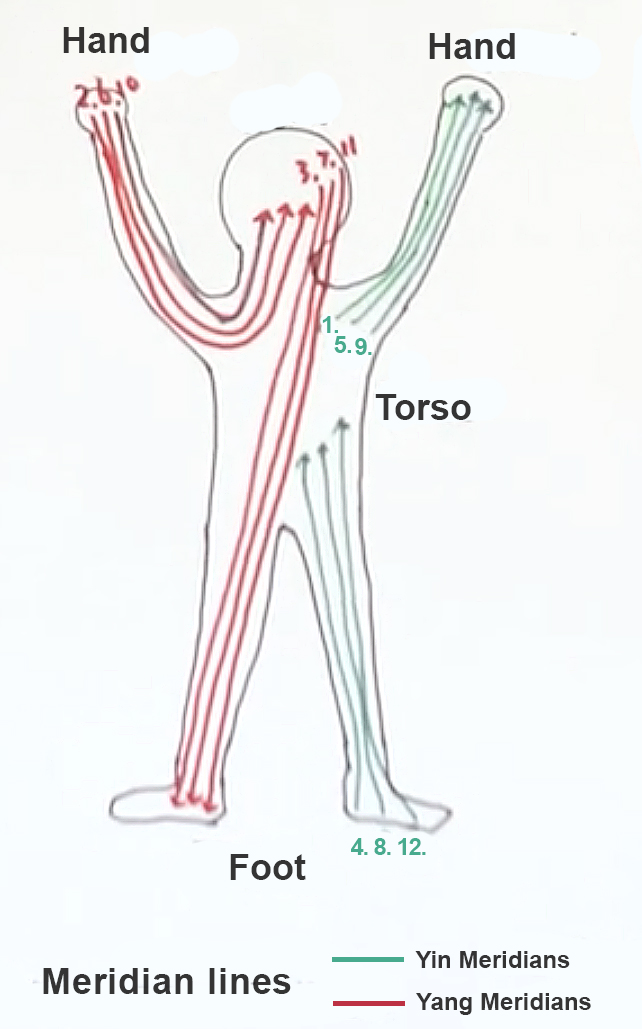
One of the definitions of a doctor in the Miriam Webster dictionary is a learned or authoritative teacher. We are called Daoist doctors when we have mastered the practice of harnessing our internal energy. Through the practice of internal alchemy, Daoist doctors keep healthy, prevent illness, and live longer.
Daoist teachers teach their students to how to move their bodies to strengthen their internal organs through the meridian pathways. Students learn to cultivate themselves physically and spiritually and with enough practice will eventually become Daoist doctors.
The Meridians
Meridians are energetic pathways that flow in our bodies. Some begin in the hands and others begin in the feet.
Each meridian is associated with an internal organ. There are two different kinds of organs. Yin organs and Yang organs.
The solid yin organs are always full and never empty:
- lungs
- heart
- spleen
- liver
- kidney
- pericardium
Yin is associated with the earth element so these meridians run up from the earth to the heavens.
The Yang organs are empty organs. They empty and fill up again. These are called the ‘vessel’ organs:
- the large intestine,
- the small intestine,
- the stomach,
- gallbladder,
- the triple warmer
Yang is associated with the sun so it runs down from the sun to the earth.
The flow of the meridian pathways
The yang meridians run from your hand to your head and from your head to your foot. Then the yin meridians run from your foot to your torso and then from your head to your hand. Your hands and feet are what connect you to the heavens and the earth. The energy that enters your body flows through the meridian pathways.
- Torso to hand - Yin
- Hand to head - Yang
- Head to foot - Yang
- Foot to torso - Yin

- Hand - Yin - Lungs
- Hand - Yang - Large Intestine
- Foot - Yang - Stomach
- Foot - Yin - Spleen
- Hand - Yin - Heart
- Hand - Yang - Small intestine
- Foot - Yang - Bladder
- Foot - Yin - Kidney
- Hand - Yin - Pericaridium
- Hand - Yang - Triple burner
- Foot - Yang - Gallbladder
- Foot - Yin - Liver
The 12 meridians make up the heavenly timetable This is also known as the Chinese clock. In this wellness clock, two hours are allocated for each organ/meridian pair.
Chinese Wellness Clock
- 3 am – 5 am - Lungs - Wake up with a cough
- 5 am – 7 am - Large intestine - Poop time
- 7 am – 9 am - Stomach - Breakfast
- 9 am – 11 am - Spleen - Digestion
- 11 am – 1 pm - Heart - Wind down to midday break
- 1 pm – 3 pm - Small Intestine coordinates with Heart - Rest time
- 3 pm - 5 pm - Bladder - wake up from your nap and pee
- 5 pm – 7 pm - Kidney's chief of all organs -Vitality
- 7 pm – 9 pm - Pericardium - Yin time slow down
- 9 pm – 11 pm - Triple warmer - Stretch your body for sleep
- 11 pm – 1 am - Gallbladder - Lying flat to begin to sleep
- 1 am – 3 am - Liver - Body detoxes while you sleep
Your wellness is based on how you schedule your time and what habits you create based on this schedule.
The human Dao (Tao) follows the heavenly Dao (Tao). It is said in Traditional Chinese medicine that If and how you go to bed at the gallbladder hour decides how you get up.
Meridians are hospitals related to each internal organ. When you practice Tai Chi and Qigong you heal your organs and become your own doctor.
First, you are a practitioner, then, you become a cultivator, and finally, you finish an alchemist.
Tai Chi is an internal martial art that focuses on internal alchemy. Today we don’t practice Tai Chi to learn to fight. We practice to live a longer life and have better health. This is what we call immortality.
This article is inspired by a talk by Wudang Master Gu
Stay connected with news and updates!
Join our mailing list to receive the latest news and updates from our team.
Don't worry, your information will not be shared.
We hate SPAM. We will never sell your information, for any reason.

